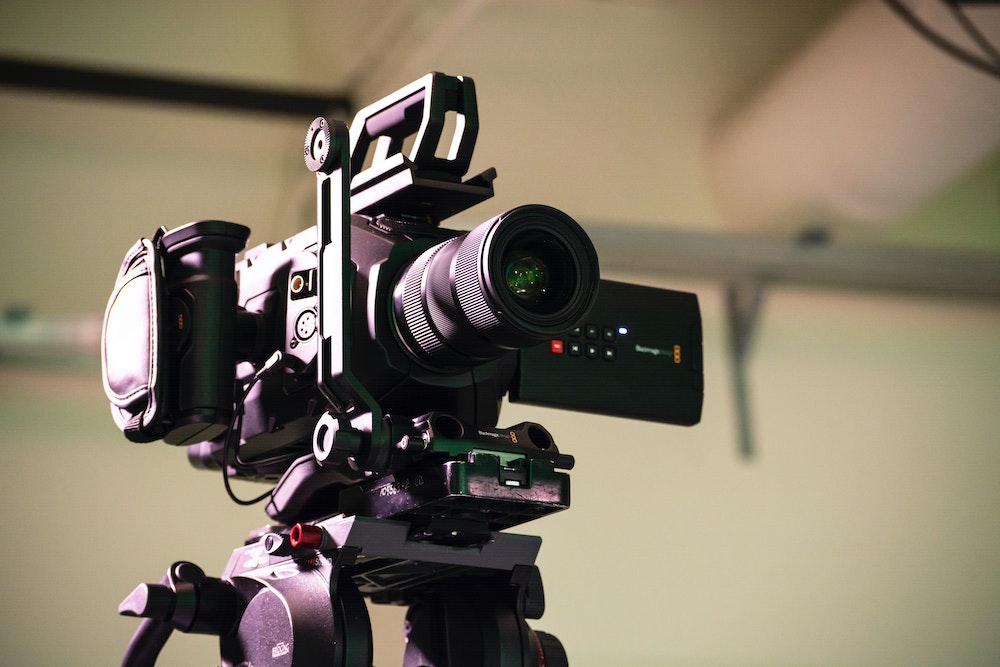Clinical simulation centers and sim labs that employ AV recording should implement policies and procedures to ensure the most efficient and effective use of the technology. While record retention is a variable that is affected by local and state regulations, few, if any, healthcare simulation centers operate separately from larger guiding principles. However, non-graded activities may allow for a shorter retention duration and this is probably a good practice to limit storage requirements and limit the chance of unnecessary access to recordings. This HealthySimulation.com article shares AV recording policies and procedures from a number of institutions and facilities to present an example of how other clinical simulation leaders are managing the technology across the industry.
Texas Tech University Health Sciences Center: Texas Tech University Health Sciences Center’s current policy outline includes the following: “Many activities at TECHS are video-recorded and/or photographed for learning, training or debriefing purposes. The videos are stored on the TECHS server; and students can view or request a copy of his or her performance. Requests for review should be submitted to TECHS director and the applicable course director. TECHS protects the confidentiality of its employees, faculty, learners, and standardized patients. Any use of the video outside of the learning purpose is strictly prohibited (see Video Recording for more information about video record retention).”
Further, the outline states that TECHS North uses a video recording system provided by Education Management Solutions (EMS). TECHS South uses the video recording and electronic documentation system LearnSim provided by CAE Healthcare. Both systems are capable of providing audio and video recording, live streaming, retention, and replay of sessions. Not all sessions are routinely recorded. If this is an expectation of the learning activity, the reason for recording must be described before approval. The common rationale for recording is for review and confirmation of performance during graded sessions, to allow learners to review and reflect upon performance and communication skills, or to assist with debriefing and case discussions.
Recording to assist with research and review is also allowed if part of an approved research protocol. Retention of recording will be in accordance with the reason for recording and the specific learner type. Video recording of students that is performed as a requested component of academic course-related simulations will be classified as “Student Coursework” under 15.2.029, according to the Texas State University Records Retention Schedule. The retention duration shall be one year after the student’s academic record is closed (AC+1). Also, 36 non-graded activities that are not part of academic course work (i.e. formative training for residents, students, or other learners) will be retained for 30 days, unless separately requested and approved.
University of Kentucky College of Nursing Clinical Simulation & Learning Center: The University of Kentucky College of Nursing’s Clinical Simulation & Learning Center (CSLC) Policies and Procedures Manual outlines how to best use healthcare simulation, innovation and research to enhance education relative to patient care and promote patient safety. Regarding video recording, the manual states that “All simulation and competency room recordings are automatically retained on a secured network recorder locked in the simulation staff offices. As per the Kentucky State University Model Series U0401, the retention policy for these recordings states: ‘Retain materials that are not picked-up and any related records until one (1) year after the date is distributed, then destroyed.’”
Further, “Video recordings of simulation are considered confidential. All students, whether actively participating or observing, must agree to maintain confidentiality of the scenario. This includes participating in real time or viewing video footage. Videos of CON Policies & Procedures Page 19 Approved 10/5/18 simulation will be maintained on a password-protected system that can be accessed by CSLC faculty and staff. Video recordings will be kept as described in Section 10(d). Signs are posted on the doors of all rooms where videoing will take place and on the entrance to the CSLC.”
Georgia College Simulation and Translational Research Center: Georgia College Simulation and Translational Research Center’s Policy and Procedure Manual states that prior to each simulation day, students are informed of the plan to record. All simulation video recordings are retained on a secured GC network, locked in the STRC server room. Recordings may be used during debriefing sessions, future viewing or for consented research purposes. Written consent from all participants will need to be obtained for non-participant(s) to view live experiences. Non-participants are the students that were not scheduled to be a part of the simulation learning experience for that day. Signage is located throughout the halls of the STRC, alerting students that they may be recorded at any time while at the simulation center.
All simulation clinical experiences are retained on a secured GC network, locked in the STRC server room. Recordings may be used during debriefing sessions, future viewing or for research purposes. Written consent from all students/participants will need to be obtained for nonparticipant(s) to view recordings. All recordings will be kept for 7 years. At the end of the 7th academic year, recordings will be deleted by the STRC Simulation Specialist, unless otherwise approved by the GC Institutional Review Board. In the event of a student appeal, recordings must be retained for an additional three years after the appeal had been completed. Recordings that are a part of an audit report or legal hold must be retained for an additional 10 years after the report is completed.
Video recordings are kept on the CAE Learning Space Simulation Center Management System within the GC SON server. Simulation equipment maintenance and logs are maintained by the Simulation Technologist. Purchasing documentation is kept by the SON Office Manager.
Missouri Southern State University Simulation Center for Interdisciplinary Clinical Education: The Missouri Southern State University Simulation Center for Interdisciplinary Clinical Education’s Policy and Procedure Manual also lays out several AV recording guidelines. The recording equipment should not be used unless proper training has been provided. All recordings will be saved to a backup hard drive. Recordings in the SCICE are for educational purposes and debriefing opportunities with the appropriate faculty, staff and students. The confidentiality agreement signed by students protects their privacy and discourages inappropriate discussion of the video content or the student’s performance in the simulation scenarios.
Any viewing or publication outside of the classroom, such as posting on YouTube, is unacceptable and unethical and will result in disciplinary action from the individual’s program. Students and faculty should conduct themselves professionally as in the clinical setting, since all interactions can be recorded. All recorded media will be kept on file in the SCICE. Copies of media will be made available to students after they have checked them out through the lab coordinator.
Duke University Center for Nursing Discovery: Duke University Center for Nursing Discovery’s Policy and Procedure Manual notes that video recordings of simulations are destroyed at the end of each semester and not used for any other purposes other than debriefing during that course. If a video is to be used for other educational purposes (conference/presentations), permission must be obtained from all simulation participants.
Additionally, the CND staff and the course faculty will discuss if an audiovisual recording of simulation events is needed during the Simulation Planning Meeting. The simulation technology specialist will oversee the video capture process and assist facilitators with turning recording properties on and off and controlling camera angles, as well as saving and deleting videos as needed. The CND staff, in collaboration with the faculty, will establish whether the recordings are used during the course for debriefing or saved for future review and research. Any video used for research requires an Institutional Review Board (IRB).
To ensure confidentiality of information, simulation event recordings are accessible only by course faculty, CND staff and simulation participants. Unless other arrangements have been made in accordance with CND procedures, all event recordings are deleted at the end of each semester, unless other arrangements have been made between the Director of the CND and faculty and/or students. Prior to any video recording being utilized, the event participants are informed of the plan to record. Upon faculty request, students may view their videos for self-assessment.
Penn State Health Clinical Simulation Center: Penn State Health’s Clinical Simulation Center’s Policy and Procedure Manual ensures that records pertaining to either formative or summative simulation performance, including either video or paper records, will be kept secure. Video records will be kept on a secure server with controlled access from the simulation staff, as stated in Simulation Policy SIM-8002 Video Recording and Privacy. Paper records including scoring checklists and other assessment tools will be kept secure by means of locked storage. It is the responsibility of the individual faculty member or staff assigned to each course to see that this occurs.
Learners participating in sessions that are recorded are informed that the resulting videos can be used only by their faculty and only for educational purposes. Further, they are assured that the use of video by other faculty or learners, even if for educational purposes, is prohibited unless all participants in the recorded session sign a written release (below) to permit such use. Commercial use of recordings is not permitted.
California State University, Stanislaus, School of Nursing: California State University, Stanislaus, School of Nursing’s Simulation Lab Policy states that the Simulation Coordinator ensures that consent for video/audio recording is obtained. Learners are responsible for signing a form before starting their simulation. The manual also shares that visual/ audio images refer to any type of recording, including but not limited to photographs, digital images, drawings, renderings, voices, sounds, video recordings, audio clips, or accompanying written descriptions. CSU Stanislaus will not materially alter the original images. Participating learners must agree that CSU Stanislaus owns the images and all rights related to them. The images may be used in any manner or media without notifying the learner, such as university-sponsored websites, publications, promotions, broadcasts, advertisements, posters, and theatre slides, as well as for non-university use.








